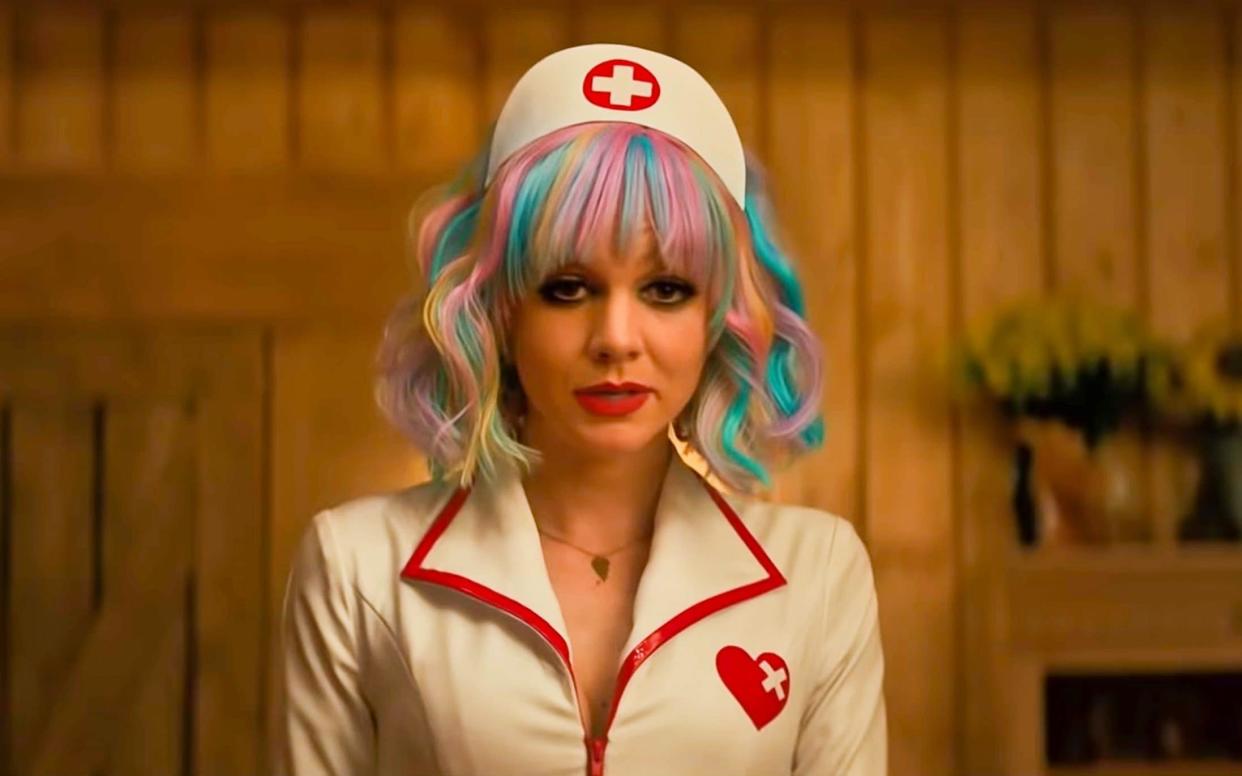Variety apologises for 'insensitive' remarks about Carey Mulligan's appearance

Hollywood’s most venerable magazine, Variety, has apologised to Carey Mulligan after one of its critics questioned her casting as a woman attractive to sexual predators.
Variety took the unprecedented step of attaching an editor’s note to its review of Promising Young Woman, following a complaint from Mulligan that the comment was sexist.
In what one Hollywood columnist described as pandering to cancel culture, the publication apologised for using “insensitive” language.
The writer of the review, Dennis Harvey, is a US critic of 30 years’ standing. But his future with Variety is unclear, after the magazine refused to confirm if it would work with him again.
Promising Young Woman is a revenge fantasy in which Mulligan’s character, Cassie, poses as hopelessly drunk and lets herself be picked up by men in bars, in order to expose their predatory instincts.
Harvey’s review was broadly positive, but he noted: “Mulligan, a fine actress, seems a bit of an odd choice as this admittedly many-layered apparent femme fatale - Margot Robbie is a producer here, and one can (perhaps too easily) imagine the role might once have been intended for her.
“Whereas with this star, Cassie wears her pickup-bait gear like bad drag; even her long blonde hair seems a put-on.”
The editor's note reads: "Variety sincerely apologizes to Carey Mulligan and regrets the insensitive language and insinuation in our review of Promising Young Woman that minimized her daring performance."
The review first appeared on Variety’s website almost a year ago, when the film made its debut at a festival. But an apology has been added after Mulligan mentioned it in a New York Times interview in December. “It felt like it was basically saying that I wasn’t hot enough to pull off this kind of ruse,” she said.
She revisited the subject yesterday in a video interview filmed for Variety. “I feel it’s important that criticism is constructive… and I don’t think that goes to the appearance of an actor or your personal preference for what an actor does or doesn’t look like,” the actress said.

“It didn’t wound my ego, but it made me concerned that in such a big publication, an actress’s appearance could be criticised and that could be accepted as completely reasonable criticism.
“I think it’s important to call out those things, because they seem small and they seem insignificant. People around me at the time said, ‘Oh, get over it. Whatever. It’s a great review.’
“But it stuck with me, because I think it’s these kinds of everyday moments that add up - that mean that we start to edit the way that women appear on screen, and we want them to look a certain way. We want to airbrush them, and we want to make them look perfect.”
Mulligan said she was “really surprised and thrilled” to see Variety’s apology.
Jeffrey Wells, a veteran Hollywood journalist, criticised Variety’s treatment of Harvey and said the magazine had “more or less thrown him under the bus”. Wells said he disagreed with the review but warned of the dangers of giving in to “cancel culture”.
“Free speech is free speech, even speech that offends or which could use a little refining,” he said.
On social media, there were calls for Harvey to be sacked. “It’s time for Variety to cut Dennis Harvey, film reviewer, middle-aged white dude suggesting (in 2020!) that women need to be goddess-hot to be believably drunk raped,” read one comment.
Other Twitter users called Harvey a “misogynistic Neanderthal” and said his review should be “a career ender”.
Variety said Harvey was a freelance critic, and last night declined to say if he would work for the publication again. A spokesman said: “Variety has no further comment. The apology speaks for itself.”
Although it is highly unusual for reviews to run with an apology attached, in 2018 the British Theatre Guide apologised after a critic referred to Nicola Coughlan, the comic actress known for Derry Girls, as playing an “overweight little girl” in The Prime of Miss Jean Brodie at the Donmar Warehouse. The phrase was removed after Coughlan complained.
It is not uncommon for stars to complain about poor reviews. When the Telegraph’s then theatre critic, Charles Spencer, gave an unfavourable review to Dame Judi Dench’s performance in Madame de Sade, she sent him a postcard that read: “I’ve always admired you but now I realise you’re an absolute s---. I’m only sorry I didn’t get a chance to kick you when I fell over - maybe next time.”

 Yahoo Movies
Yahoo Movies 
